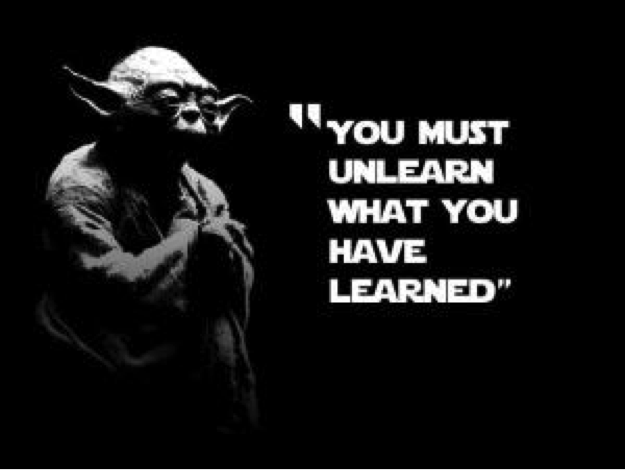- Home
- About Us
- The Team / Contact Us
- Books and Resources
- Privacy Policy
- Nonprofit Employer of Choice Award



Most young children come up with the answer to this within a few seconds. Adults? Most of us don’t even get it at all. Why? We look for patterns, we look for things that aren’t there, we ignore the things that actually are there and we overcomplicate. Children get it because they do what adults often fail to do – appreciate something at its simplest level, at face-value. (The spoiler to this riddle is below.)
Sometimes to really learn, you first have to unlearn. With all of the barriers created by our often unfounded certainty, creativity and curiosity can get blocked. It’s important to ask questions of the world.
How about these choice gems that for many years, a large number of people accepted that they “knew” these things?
How about these so-called facts that many people today (including me before doing some research) still believe?
There are no universal truths, just ways of viewing the world. If you are fixed in one way of thinking and don’t open up your mind, you may not come up with the best solution or generate the best idea.
Over time, as we “grow up”, we are often taught in ways that shut down our creativity and encourage us to only seek knowledge which confirms our beliefs. In fact, we are naturally built to do just that, it’s called the confirmation bias – we are all guilty of doing it.
Put on your Kid Goggles
As you venture through AFP Toronto Congress next week, here are some ways you could help yourself unlearn and put on your Kid Goggles, even temporarily, to nudge your mind to uncharted territory and see the world in a different way:
Spoiler alert: By the way, the answer to the riddle above: The letters below the line have curves and the ones above the line don’t. Simple, and now, obvious. Admittedly, I didn’t figure this out, and I felt pretty dense when the answer was revealed. It’s not my fault. I’m an adult!
What have you learned that may prevent you from learning more? Can you think of other ways to put on your Kid Goggles? How has seeking opposing views and information helped you channel creativity and innovation?
On Wednesday morning at Congress I will be presenting a session with Kimberley MacKenzie. We will discuss these and other important issues to help you move from survival to “thrival”. We would love to see you there!
Rickesh passionately believes that every donor deserves to feel excellent about giving, and that the duty of a fundraiser is to bring passion towards enhancing the donor experience every day. He is adamant about always putting people first, then process, and that fundraisers, charities and social profit groups should not be afraid to have a personality. Rickesh is the Executive Director at Future Possibilities for Kids, where they provide leadership and life skills development programs for children and youth from underserved communities. Prior to this, Rickesh was the Director, Campaign at United Way York Region, leading an $8M annual fundraising campaign. He is on the Board of Directors for the Association for Fundraising Professionals of Greater Toronto and is the lead organizer of Be Good Be Social York Region, a conference promoting social media for social good.